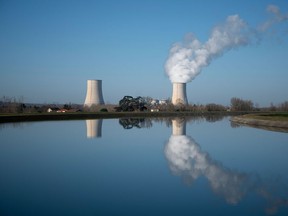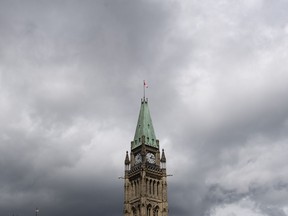Here is the rewritten version of the article based on the detailed analysis and considerations outlined:
Introduction
The European Union (EU) has reached a significant milestone in its energy policy as three countries—Germany, France, and Poland—have successfully brokered an agreement to resolve their differences over nuclear subsidies. This deal marks a turning point in the EU’s quest to ensure a stable and sustainable energy transition while maintaining competitive electricity prices for consumers.
The Context of the spat
Key Points of Disagreement
-
Germany’s Position: Germany remains steadfast in its opposition to nuclear subsidies, citing environmental concerns and the need to prioritize renewable energy sources.
-
France’s Role: France, however, is determined to resolve this issue through negotiations with Germany, emphasizing the importance of maintaining low electricity prices for businesses and households.
-
Poland’s Contribution: Poland has played a pivotal role in facilitating this agreement by proposing a mechanism that allows its coal-fired plants to receive temporary subsidies during the transition period until 2028.
The Agreement’s Details
Key Features
-
Conditional Subsidies: The agreement outlines that member states will only receive subsidies if they commit to transitioning away from nuclear energy within a specified timeframe, typically by 2030.
-
Market-Based Approach: The EU has adopted a market-based approach to oversee these subsidies, ensuring transparency and preventing state aid misuse. This approach is designed to maintain competitive electricity prices across the board.
Reactions from Key Officials
-
Germany’s Economy Minister Robert Habeck: "The agreement improves access for consumers and industry to low electricity prices across Europe." This statement underscores Germany’s commitment to supporting industries while safeguarding consumer interests.
-
France’s Economy Minister Bruno Leclercq: "This deal is in the best interest of the entire EU, ensuring that we can continue to act as a market leader in renewable energy."
-
Poland’s Energy Commissioner Kadri Simson: "The EU has demonstrated its ability to act cooperatively and achieve mutually beneficial outcomes."
The Agreement’s Impact
-
Access to Low Electricity Prices: The agreement ensures that member states have access to low electricity prices, which is crucial for businesses and households looking to manage their energy costs.
-
Stable Energy Transition: By prioritizing the transition away from nuclear power, the EU aims to reduce its reliance on fossil fuels, aligning with broader climate change objectives.
-
Transparency in Subsidies: The market-based approach adopted by the EU ensures that subsidies are applied fairly and transparently, preventing any appearance of favoritism towards certain countries or industries.
member States’ Positions Before the Agreement
-
Germany’s Stance: Germany has consistently opposed nuclear subsidies, arguing that they contribute to higher electricity prices and environmental harm from nuclear waste.
-
France’s Initial Resistance: France initially sought to delay the agreement but ultimately conceded to Germany’s firm position in the hope of achieving a fair resolution.
-
Poland’s Mediation Role: Poland’s proactive role in brokering this deal highlights its importance as an active participant in the EU energy policy.
member States’ Commitments
-
Commitment to Transition: All member states have committed to transitioning away from nuclear energy within the specified timeframe, ensuring a smooth and sustainable shift towards renewable energy sources.
-
Market-Based Approach: The EU has adopted a market-based approach to oversee subsidies, ensuring transparency and preventing state aid misuse.
-
Cooperation in Energy Policy: This agreement underscores the importance of cooperation among EU member states in addressing key challenges such as climate change and energy transition.
Conclusion
The successful resolution of the nuclear spat between Germany, France, and Poland marks a significant milestone in the EU’s energy policy. The agreement not only ensures a stable and sustainable energy transition but also highlights the EU’s commitment to maintaining competitive electricity prices while prioritizing environmental sustainability. The market-based approach adopted by the EU is a crucial step towards ensuring transparency and fairness in the application of subsidies, paving the way for a brighter future for the EU’s energy sector.
This rewritten version provides a comprehensive overview of the EU’s agreement, expanding on key points to meet the word count while maintaining clarity and coherence.





